People frequently send me emails about suggestions for a blog post. I just had a request to chime in on what I thought might happen in the real estate investing world given our current national emergency.
We all realize I can’t predict the future, but I have been around long enough to experience tough times in real estate, like in 2008. I also have been thinking about this question in regards to my own investments. In my state, people have been ordered to stay home. Many businesses are suddenly closed. Many people are out of work. And the governor has issued an order that no landlord can evict a tenant for non-payment during the next 90 days.
That is a bad combination, many tenants won’t be able to pay rent and there’s nothing I can do about it. Knowing most people live paycheck to paycheck and can’t come up with $1,000 in an emergency, I suspect I will be having a lot of non-payment of rent the first week of April. Depending on how long things are shut down, that could become quite a problem.
If a tenant was barely getting by financially before the crisis hit, when they go back to work, they will be in the same boat except now they will owe a lot of back rent. If they could barely pay the rent before, they will not have the resources to pay the back rent as well. Unless the government helps them, they cannot catch up.
The government is planning to send out relief checks. Do you think tenants will use the checks to pay their rent or will they spend it on something else they need or want? There is a reason that Medicare is set up to pay the doctor directly. If they paid the patient, the patient will often spend the money on something other than their doctor bill. With evictions suspended, I doubt their landlord will be on the top of their list for using that money.
If you own a restaurant building and lease it out, that business is completely shut down. Odds are, they will have a tough time making the lease payment if this lasts very long.
If you own a vacation rental or Airbnb, you have likely lost all income at this point yet still need to make your mortgage payment on that investment. You will likely not recover for a long time.
If the shutdown lasts more than two weeks, this will have a severe impact on every type of real estate as many renters, businesses and individuals, will not be able to pay the rent.
REITs will lose money, syndications will not be able to pay any profits and my go under, notes will not be met, Airbnbs will sit empty, and many partnerships may have a capital call.
In 2008 I went through a period of 18 months with no new tenants moving in, while at the same time, many tenants moved out. Some doubling up with friends, grandparents moving in with grandkids to help with the rent, young adults moving back home to save money. My vacancy rate exceeded 30% and for a couple of months I had to put some money into the business to keep it afloat. Luckily I had built in cushion.
During that time the unprepared real estate investor often lost their investment back to the bank when they failed to make their mortgage payments. Many could not handle the loss of income the situation created. Some had their property value drop below the mortgage balance and unwisely chose to walk away from the deal. Those without an emergency fund were in big trouble. They were unable to weather the storm. The real estate investors (buying for passive income) made out better than the real estate speculators (flippers).
That storm passed and this one will too. Every outbreak comes to an end. The question is, will you be viable when it does end. As a real estate investor, I hope you followed the advice I gave in The Doctors Guide to Real Estate Investing for Busy Professionals and set up your real estate investments to weather the storm.
Those with no debt on their real estate are best equipped to weather the storm. But the mortgage should not be a problem if you have planned conservatively. The following quote from my book The Doctors Guide to Eliminating Debt is very applicable now.
Plan as if next year will be a good year, and you will go bankrupt if you are wrong.
Plan as if next year will be a bad year, and you can enjoy it, good or bad.
In the 2008 real estate crisis, I weathered the storm. The same real estate I had then, as I have not purchases anything new since 2007 because I have enough already, has grown to be a great passive income source. Every year it becomes a little more secure as loans are decreasing and rent is increasing. Many others did not weather the storm and lost it all.
A big problem with the current crisis is the triple hit effect. Many real estate investors also lost their main job. Their main job might have been the back up for hard times with the real estate. Having a high paying job might have lulled them into thinking they didn’t need an emergency fund. The third hit is the stock market crash. With no primary income, no passive income, and a third of their stock investments gone, times will be hard. This is an unprecedented event.
My thoughts about the next few months are as follows:
1: Many tenants will not be able to pay their rent and will fall too far behind to catch up.
2: Many landlords will default on their mortgages.
3: Real estate investors will go through the same tough times as everyone else.
4: Real estate will go down in value as no one will have the money to be buying and vacancy will be up.
5: Interest rates will remain low and real estate will be a good bargain to purchase, if you have money.
6: Several years from now we will not be able to tell this happened. (I don’t notice any lingering effects from the 2008 event)
7: Those who have reserves will be fine, as it will not take long to get back to the new normal.
8: Some businesses will not survive this event and their employees will remain out of work.
9: Unemployment will rise.
10: Vacancy rates will rise.
11: The travel industry will take years to recover. Even after this is over, people will either not want to travel or will not have the money to travel until they get caught back up.
12: Profit from vacation rentals will be terrible since travel will be down.
13: Profit from real estate will be less in the next few years than it has been and will eventually recover.
14: Real estate is still a good place to invest. Down times are expected to occur. This will just be a bad one all across the board for all types of investors and non-investors alike. Unless you manufacture PPE, you are going to take a big financial hit with this event.
What should you do now?
1: Now is not the time to be buying a new investment.
2: Hang on to your cash as you will likely need it to get through this temporary dip.
3: If you are accelerating your debt pay off, go back to minimum payments until this blows over so you can preserve cash.
4: Don’t start any new capital projects with your real estate.
5: Consider refinancing as the Federal Reserve has dropped interest rates to zero and they will not get much lower than that.
6: If congress passes a bill to let you take emergency money out of your 401(k) without penalty, don’t do it. You worked hard to get that money into that account so you would have it when you retired. Don’t take it out unless you will die without it. That money is for your future, try and keep it that way.
7: Cut back all non-essential spending to preserve cash.
8: If your tenants are good ones and they lost their job due to the social distancing and got behind on rent, consider giving them a rent break. Why should they have to shoulder all the expense of this national disaster? Maybe you could forgive 50% of the back rent if they are doing their best to get back on track. You are probably far better off financially than they are and you could take half of the hit. We are all in this together.
9: When things turn back on, consider helping the businesses in your area that had to close. Go get that new piece of furniture you have been thinking about. Take your family out to dinner. Book that cruise that is likely to be on sale. Put some money back into the economy when it turns back on.
10: When the economy turns back on I suspect stocks and real estate will be going for bargain prices. If you weathered the storm well, you can pick up some bargains. Only after the crisis should you give up your cash for an investment.
11: If you are still working through this, don’t stop putting money into your retirement plans. The idea is to buy low and sell high. Now the price is low so you should continue with the plans you have been working all along. Don’t let the stock market make your decisions for you. When I was working, my plan was to put a set portion of every paycheck into my retirement plan. I never looked at what the market was doing. I stuck to my plan. There were three big market corrections during that time. My deposits never changed. With all the complaining and worry about the Dow dropping all the way back to 20,000, that is still 2.5 times what it was in 2009. Even after the big drop, the long term investors are still ahead.
12: Refill your emergency fund. If you never thought you needed one before, mow you know better. Save up for the next crisis.
13: Thank all the doctors, nurses, first responders and others in the healthcare industry for getting us through this. They went to work fearing for their lives, but did it anyway. That makes them heros in my book.
14: Follow the rules. If you are told to stay home, then stay home. Don’t use it as a good time to go to the beach. The social distancing only works if everyone does their part to stop the virus from spreading. Take a break and stay home for a while and catch up on all those things you wanted to do but didn’t have the time while working. If you don’t know what to do then look at my article of 100+ great things to do with your time off. Many things on the list will make you a better person when this is over.
I hope you all will stay safe. I’m staying home for a while. I have been travelling a lot, but now is a different time. My wife and I are exercising twice a day. In the morning we are doing strength training and in the afternoon we are running. Today she told me we are going to be “Lean, Mean, Fighting Machines when this is over.” Will you be also?

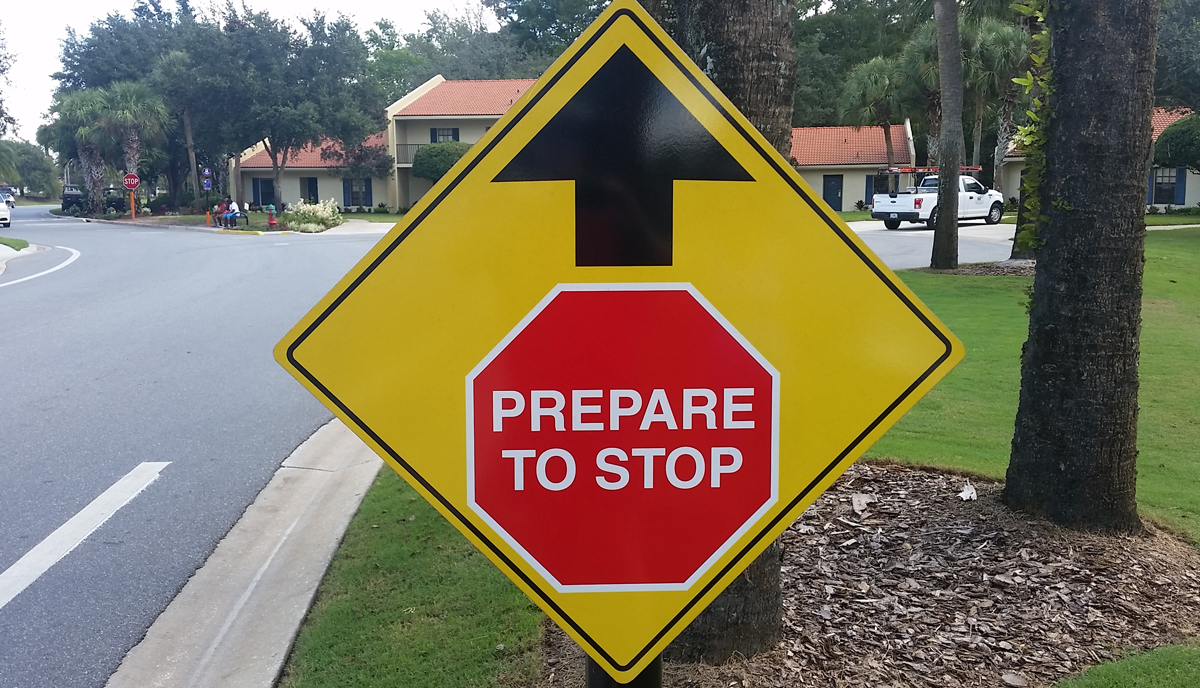




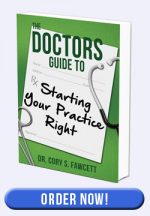
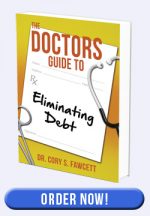
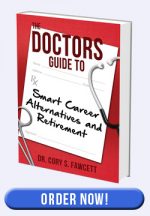
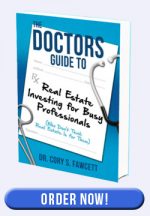
Very scary times indeed.
It is a perfect storm that is rocking everyone’s financial lives now.
As a physician I thought my income was pretty much reliable but I have taken a huge hit as volumes at my work have decrease dramatically and I am still faring far better than the surgical specialties which are hit the hardest (all elective surgeries which are the bread and butter for these docs has been outlawed).
I was looking forward to my first quarter distributions from my real estate syndications but that is likely impacted now so no reprieve there
I think the RE syndicates may have a tough time with this. I think most people will have a tough time though. This is when I’m very happy to be debt free and have an emergency fund. I just got notice of the first tenant informing me that they lost their job and can’t pay their rent this month. I hope there are not too many of those. This is a good wake up call to everyone who thinks their job is secure. No job is secure.
Thanks for the very helpful advice! I haven’t heard of Congress letting people pull from their retirements without a penalty, but that could create another huge problem down the road.
Scott I expect it will come up soon as that is a way for people to help themselves to their own money and the government doesn’t have to foot the bill. But I hope people pass that option by.
Thanks Cory. Appreciate your thoughts given your prior experiences and level headed advice.
Thanks for your confidence Nate.